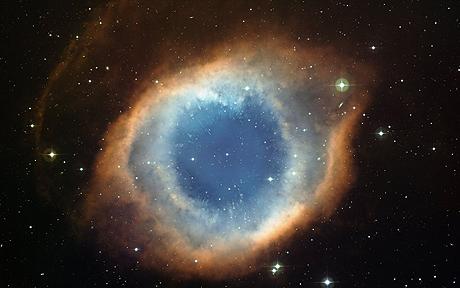Scientific Proof of the Existence of God
Scientific Proof of the Existence of God
Source: God, The Creator
A materialistic, atheistic man at the beginning of time might have imagined, meek creature that he was, that an enormous star like the sun, which he saw every day without change in its form, was eternal and that it would remain like that forever, for he had always seen it that way without change.
The philosophers postulated the agelessness of celestial bodies and their eternity, meaning that they were not created and that they had been the way they were since time immemorial.
Modern science, however, has now confirmed completely that the rays produced by the sun diminish its mass (even if the amount it is diminished is infinitesimal compared to its size), which will lead to its end one day in the future, though that may indeed be far distant.
With that, modern science invalidated the saying of the philosophers and deniers of the Existence of God that the sun or any of the other stars is eternal, and likewise the other celestial bodies and planets. Since they have a date of beginning, then by definition, they must also have an end.
Then, these philosophers who denied the Existence of God, the Creator, came and said that the atom (matter) is eternal, but physics has invalidated this assumption. It has demonstrated that the atom itself is made up of other subatomic particles, such as the electron, the neutron and the proton.
Then, it showed that these subatomic particles themselves are made up of smaller parts, the latest of which physicists call the ‘quark.’
One might say that the quark is eternal matter, but that would also be wrong because:
1) That would be to speak without knowledge, since a quark does not contain anything that would indicate it is eternal or that it itself is not composed of smaller particles as was previously postulated about the atom, especially if technology advances and develops more than it is now, which it will undoubtedly do, for advances in technology now happen at an amazingly swift pace.
2) If these quarks, or anything other ‘sub-quark-ian’ particles that may one day be discovered to be smaller or more minute than the quark, are ever found to be the smallest particles, then this form of matter (quarks or otherwise) must necessarily be self-sufficient, independent in their existence from others. In other words, they do not cease to exist, they do not change, and they do not get exchanged. Yet, that, too, is incorrect, since:
Modern science has established that these particles are subject to transformation into energy, and that energy itself is subject to transformation into matter, so that what we call hydrogen, for example, and what we call light energy are in reality two sides of a coin, since:
Energy is equal to mass times the speed of light squared (E=mc²).
This ability to transform indicates: that its ability to remain in a particular form was reliant on external factors, meaning: as long as these factors persist, it remains in one form.
Therefore, its existence does not depend on itself.
Therefore: It cannot possibly be eternal.
Another result of this is: that matter in any of its forms is subject to destruction, for matter does get created and destroyed, since it can be broken down or transformed into other forms of matter or energy, and anything that can be broken down or transformed is not eternal[1].
[1] Summarized from the book, Physics and the Existence of a Creator (Al-Fisiyaa’ wa Wujood al-Khaaliq), by Dr. Ja`far Shaikh Idris.
Number of View :2212














